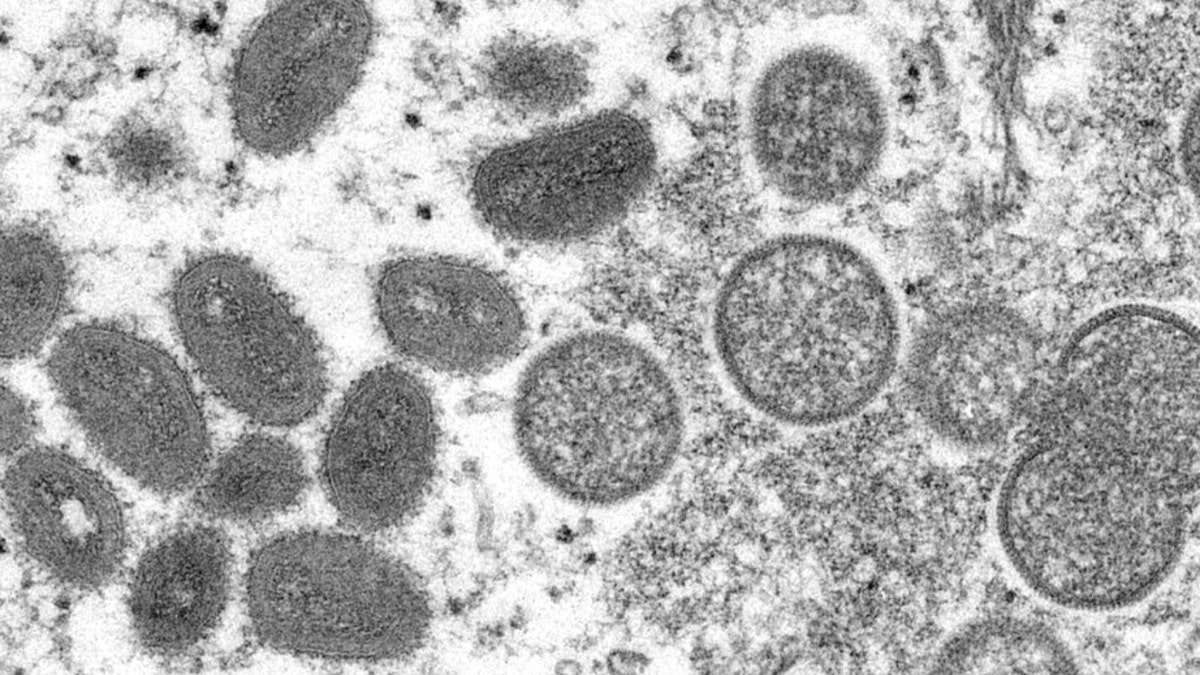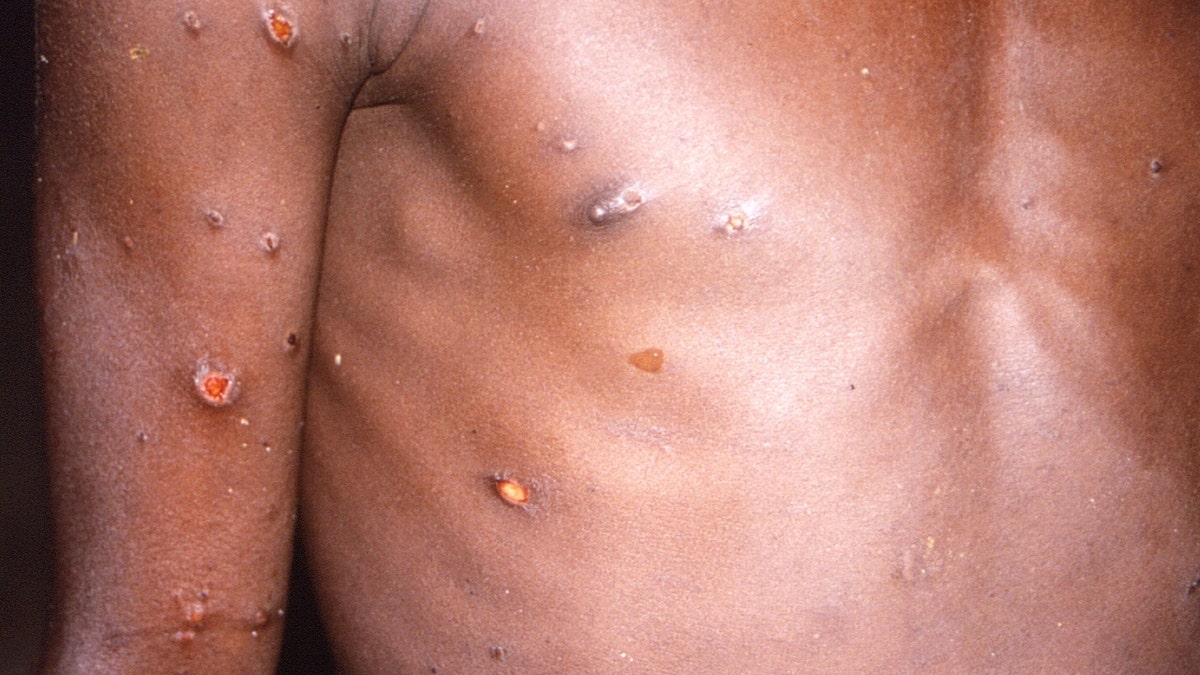Fox News Flash top headlines for May 19
Fox News Flash top headlines are here. Check out what's clicking on Foxnews.com.
The monkeypox virus is spreading across the world, with reports of cases in the U.K., Spain, Portugal and the U.S.
In Massachusetts, a case was found in a man who had recently traveled to Canada.
Although it's the only case in America that the Centers for Disease Control and Prevention (CDC) is aware of, health officials are looking into whether it is connected to small outbreaks in Europe.
MASSACHUSETTS CONFIRMS FIRST CASE OF MONKEYPOX IN THE UNITED STATES THIS YEAR
An agency representative told The Associated Press that the CDC is "preparing for the possibility of more cases."
In Portugal, health authorities confirmed five cases of monkeypox in young men, and Britain announced two new cases.
The British Health Security Agency had previously reported four cases they said had spread among gay and bisexual men in London.

This 2003 electron microscope image made available by the Centers for Disease Control and Prevention shows mature, oval-shaped monkeypox virions, left, and spherical immature virions, right, obtained from a sample of human skin associated with the 2003 prairie dog outbreak. (Cynthia S. Goldsmith, Russell Regner/CDC via AP)
In Spain, health leaders said they were assessing an outbreak of 23 possible cases.
Officials are looking into the possibility that some infections were spread through close contact during sex.
Monkeypox has not previously been documented to have spread through sex, but can be transmitted through close contact with infected people or contaminated materials.
It is usually spread by touching or getting bitten by infected wild animals in western and central Africa.
UK CONFIRMS MORE CASES OF MONKEYPOX
The virus enters the body through broken skin, the respiratory tract or the eyes, nose or mouth.
Initial symptoms of monkeypox include, fever, muscle aches, exhaustion, headache, backache, the swelling of lymph nodes and chills.
Within one to three days, or longer, the patient develops a rash and lesion progress before falling off. Most people recover within weeks.

An image created during an investigation into an outbreak of monkeypox, which took place in the Democratic Republic of the Congo, 1996 to 1997, shows the arms and torso of a patient with skin lesions due to monkeypox, in this undated image obtained by Reuters on May 18, 2022. (CDC/Brian W.J. Mahy/Handout via REUTERS)
The illness typically lasts for two to four weeks and, in Africa, monkeypox has been shown to cause death in as many as 1 in 10 people who contract the disease.
While there are a number of measures that can be taken to prevent infection with monkeypox virus – including avoiding contact with animals that could harbor the virus and any materials that have been in contact with a sick animal – there is currently no proven, safe treatment for monkeypox virus infection.
A vaccine developed against smallpox has been approved by the U.S. Food and Drug Administration (FDA) for monkeypox prevention, and several antivirals also appear to be effective.
CLICK HERE TO GET THE FOX NEWS APP
Infections are rare in the U.S. Last year, Texas and Maryland each reported a case from people who traveled to Nigeria.
Monkeypox was first discovered in 1958 and comes from the same family of viruses as smallpox. The first human case was recorded in 1970 in the Democratic Republic of Congo.
The Associated Press contributed to this report.










































